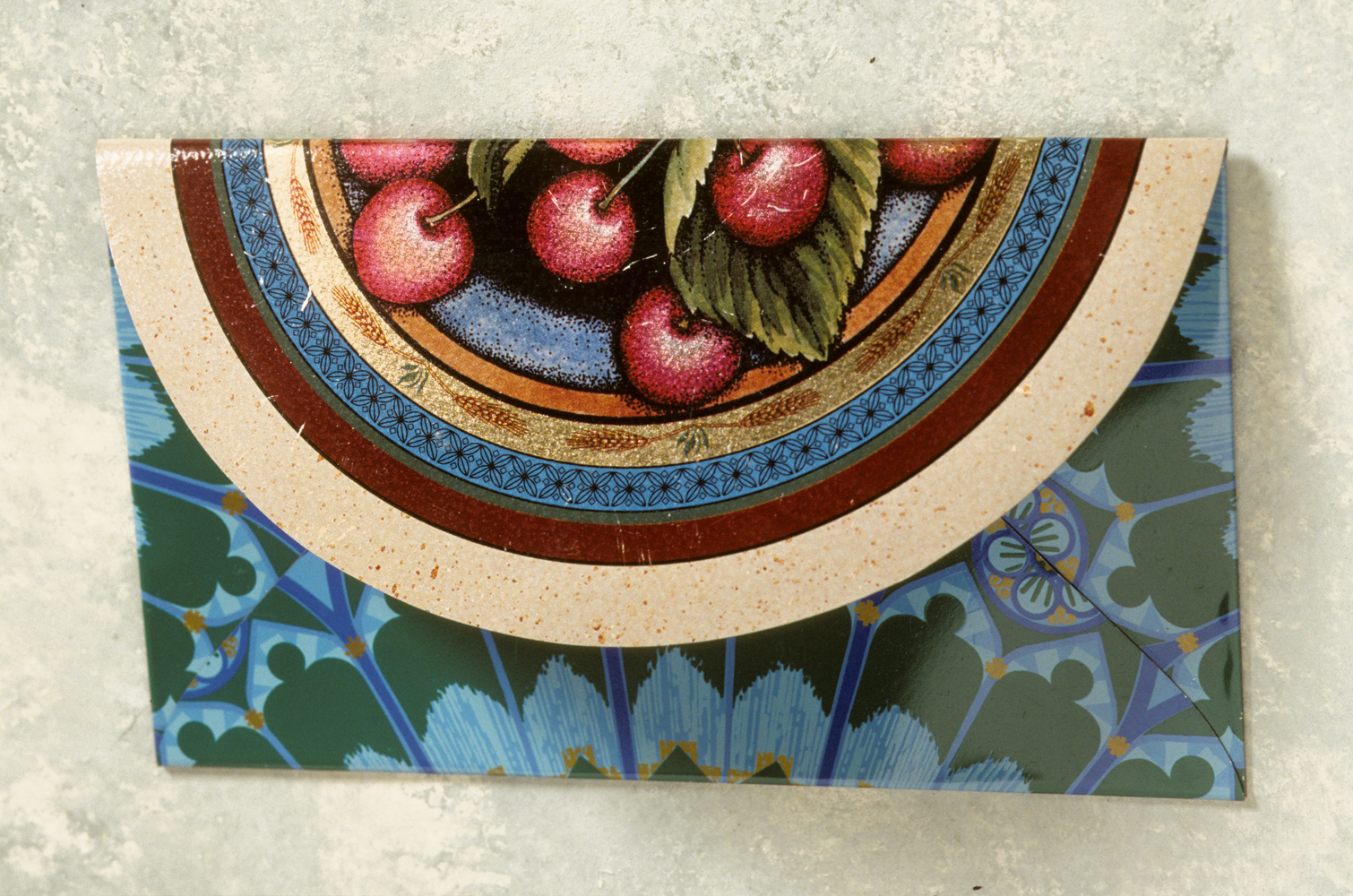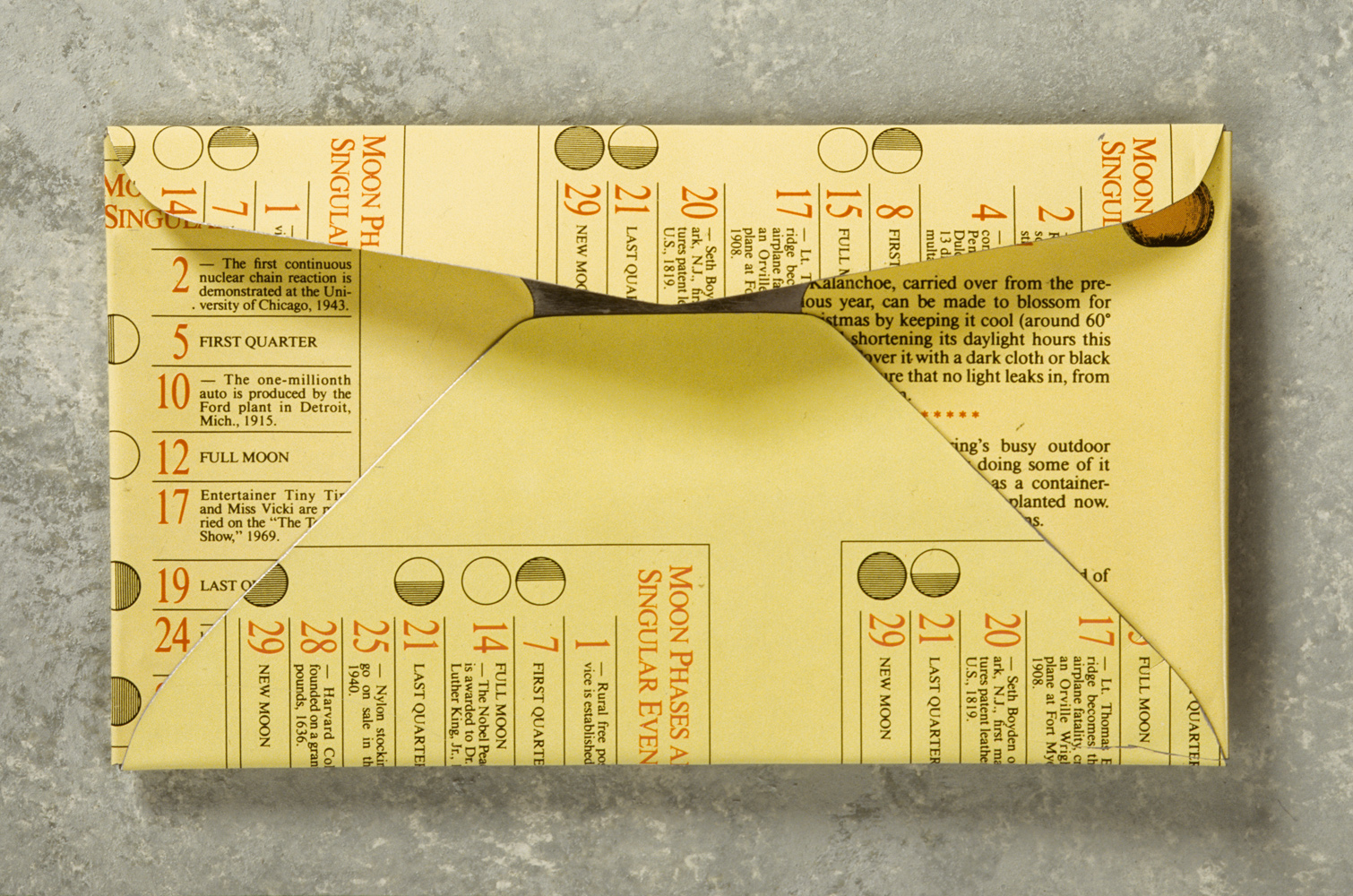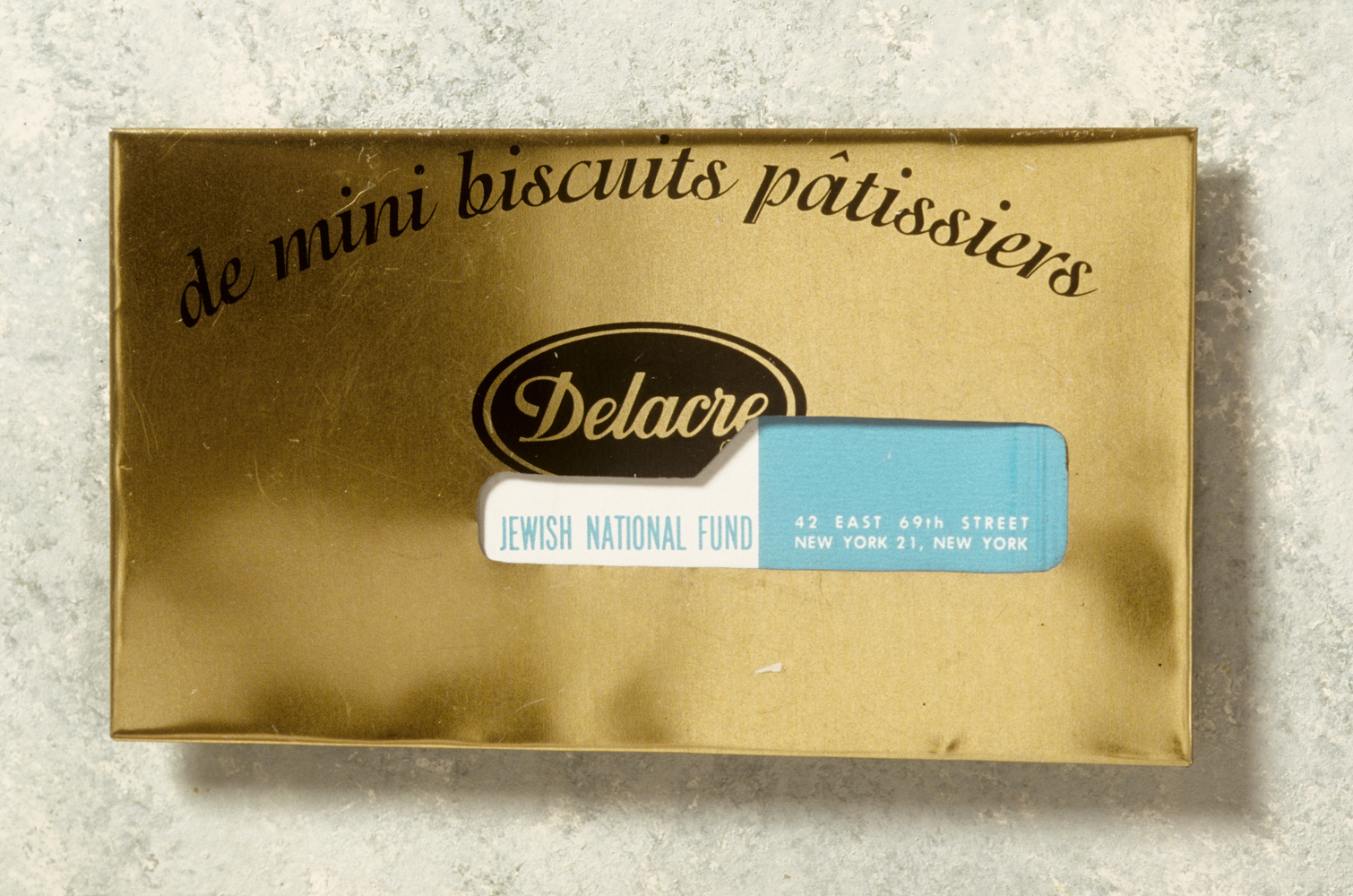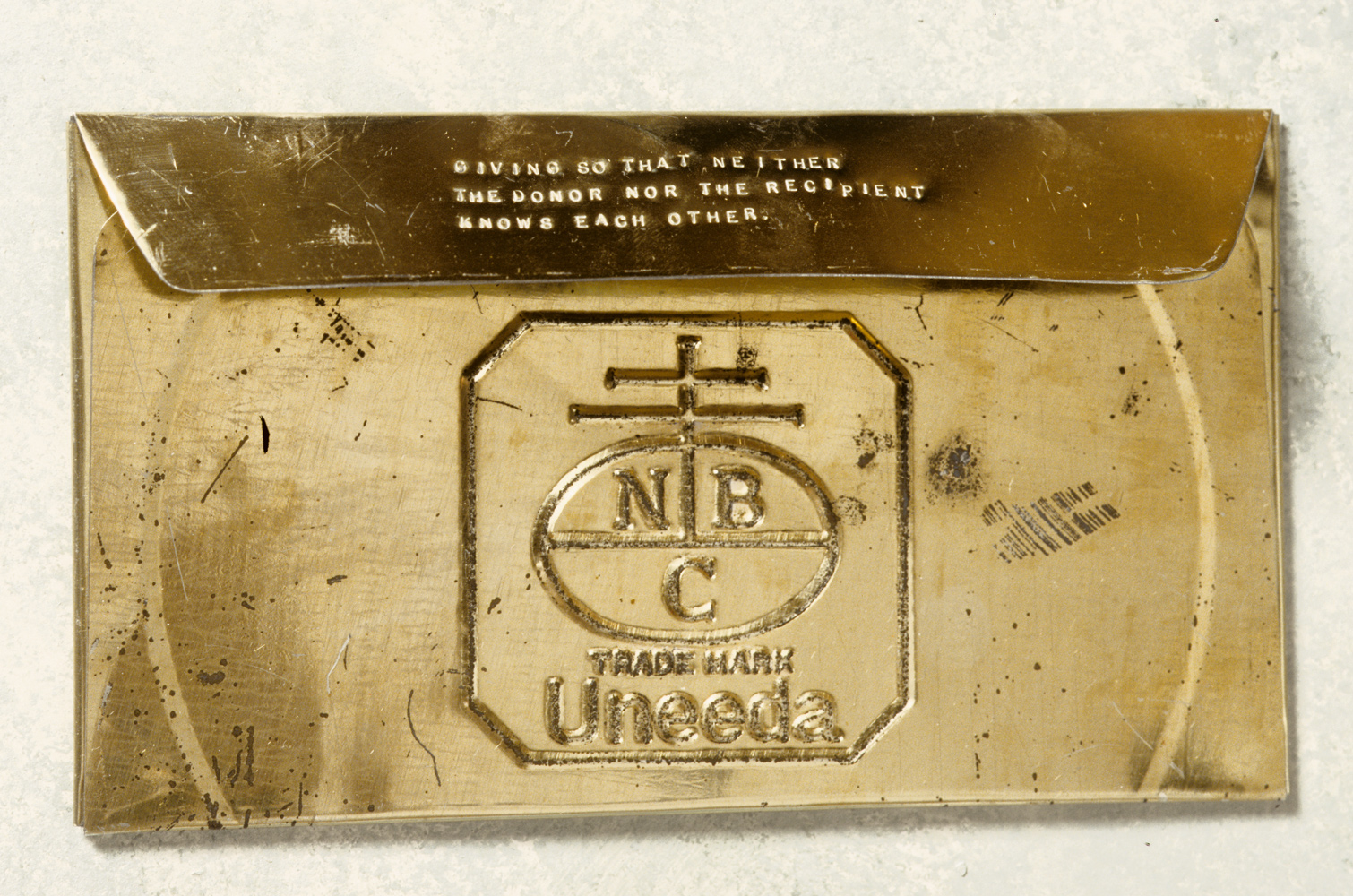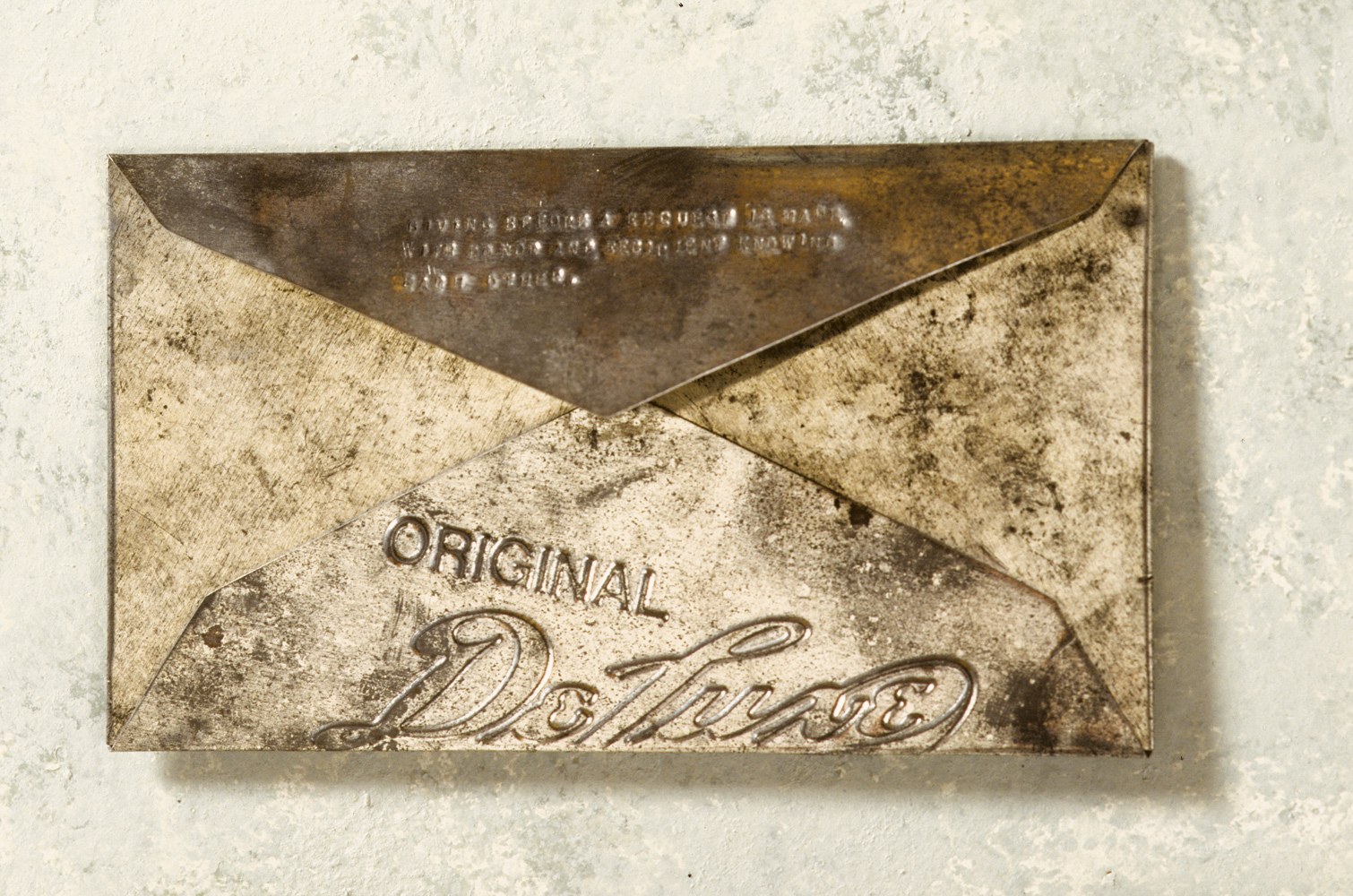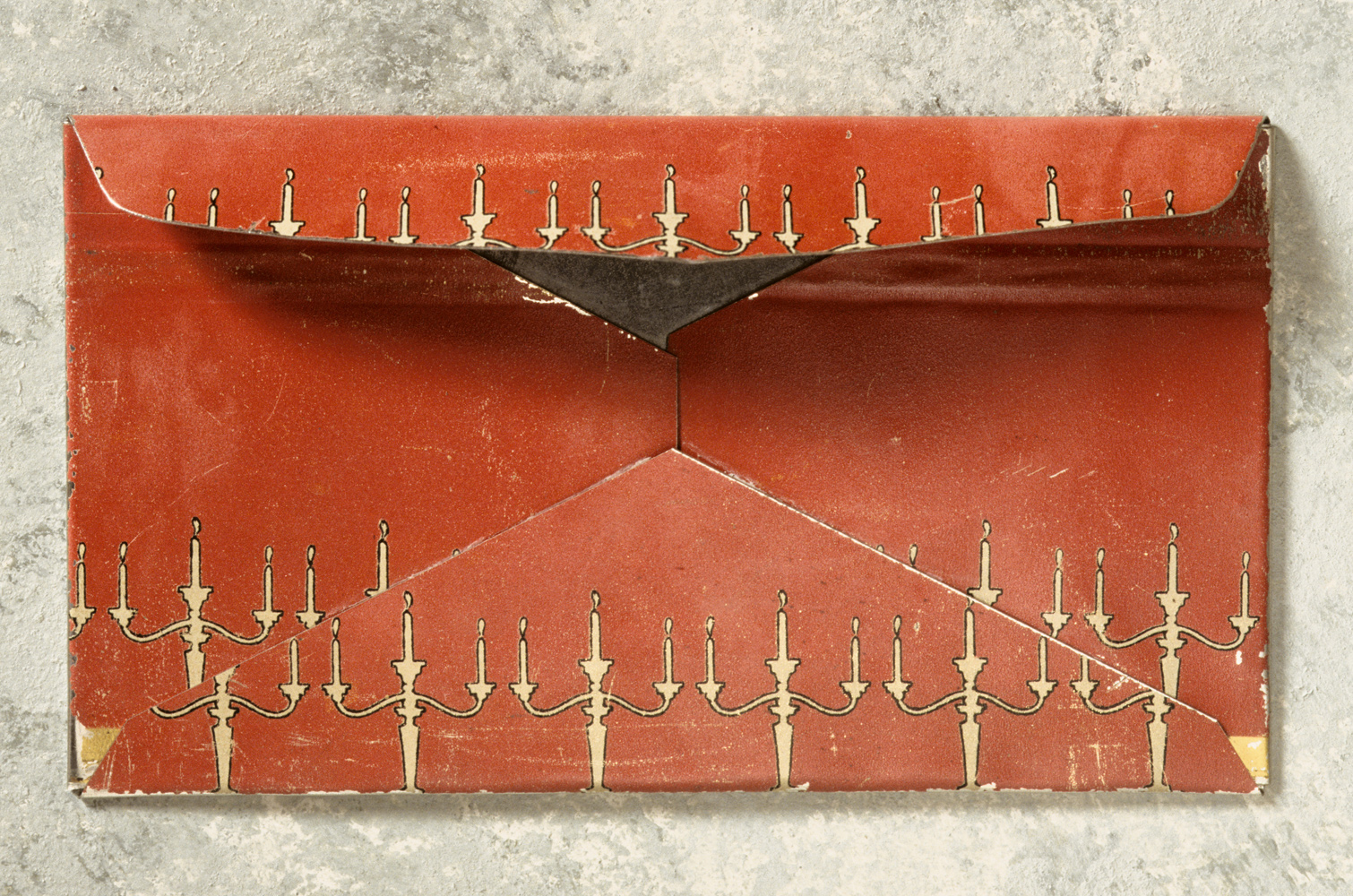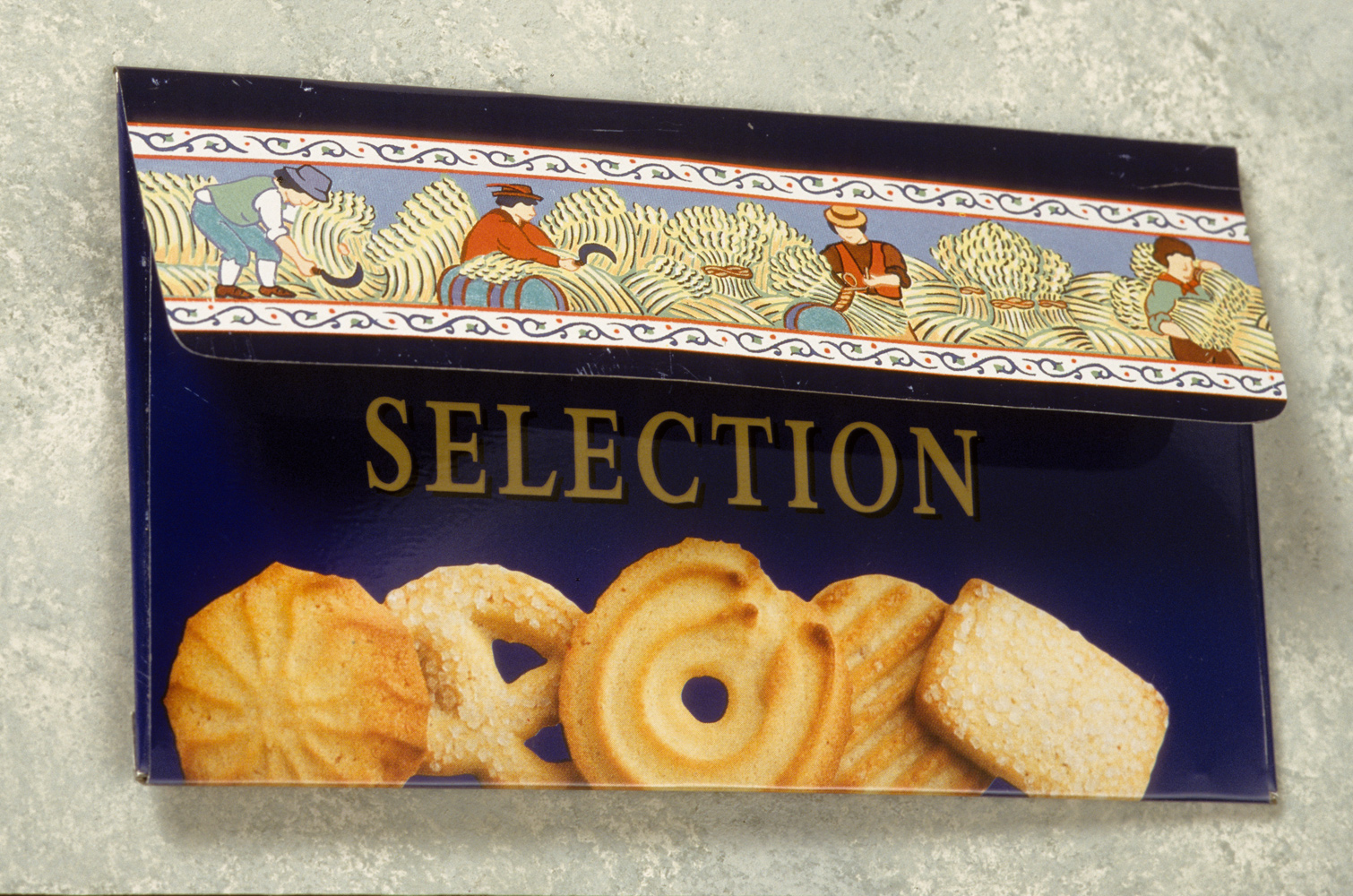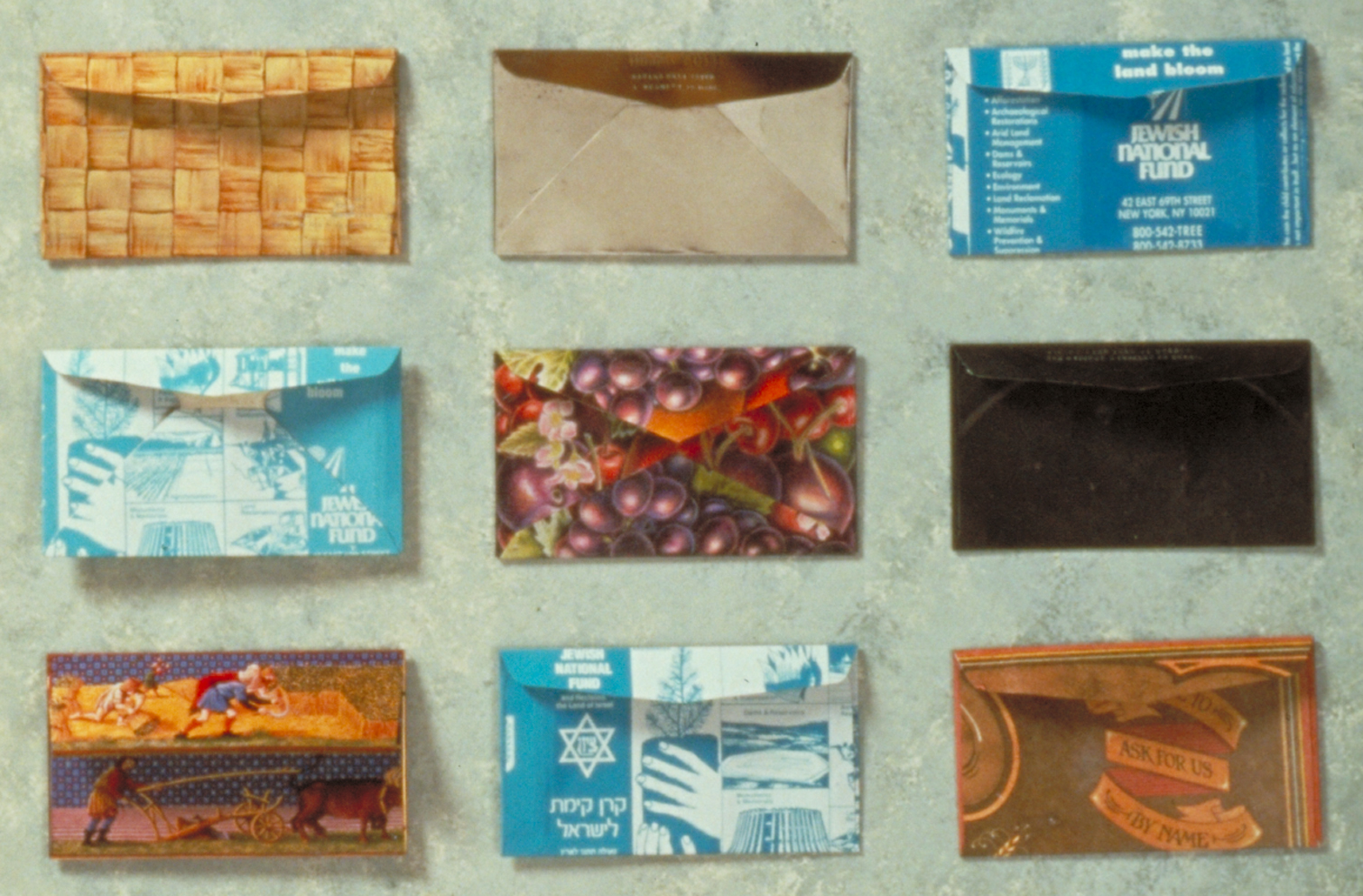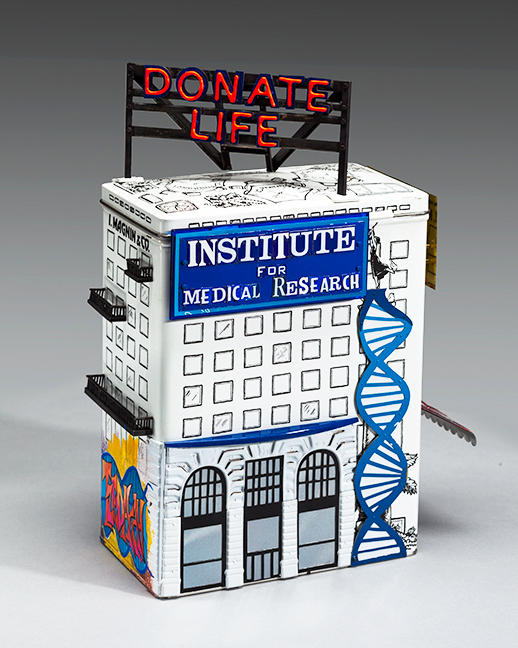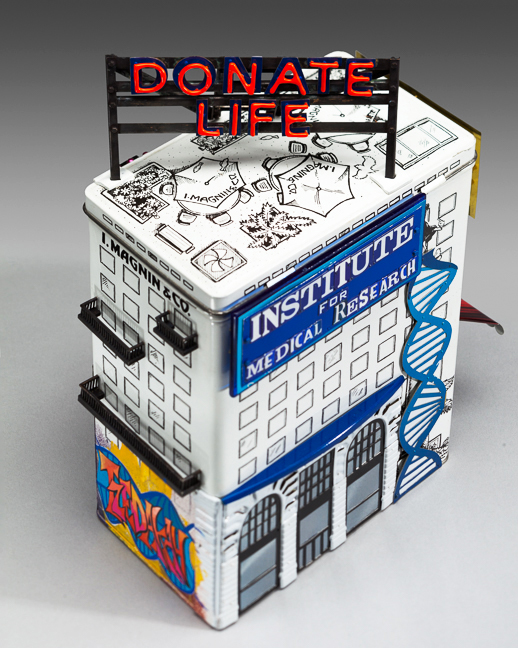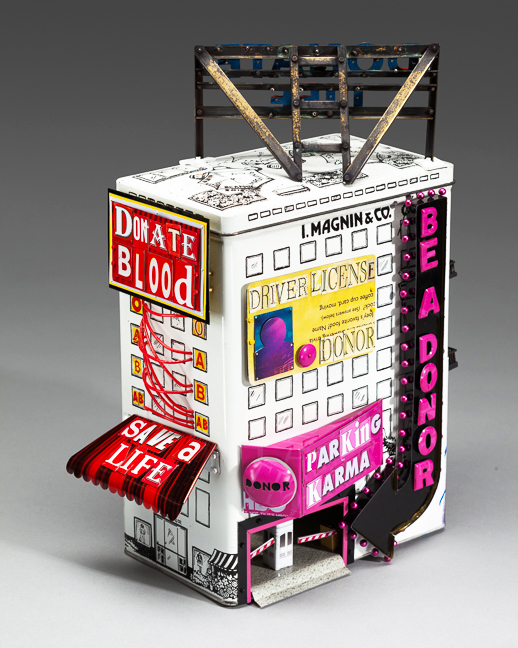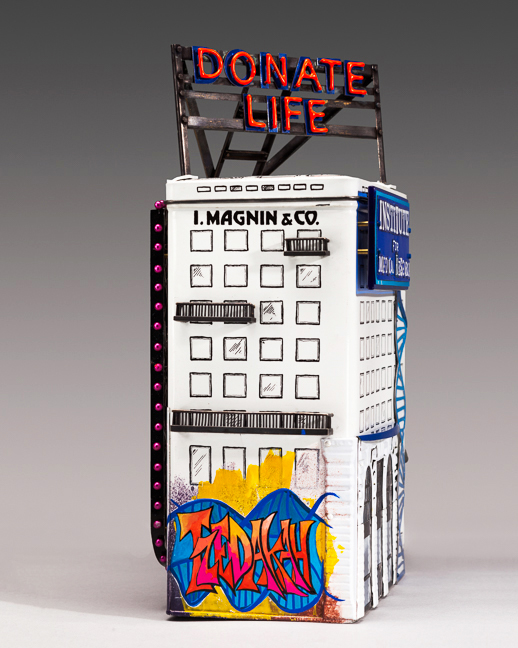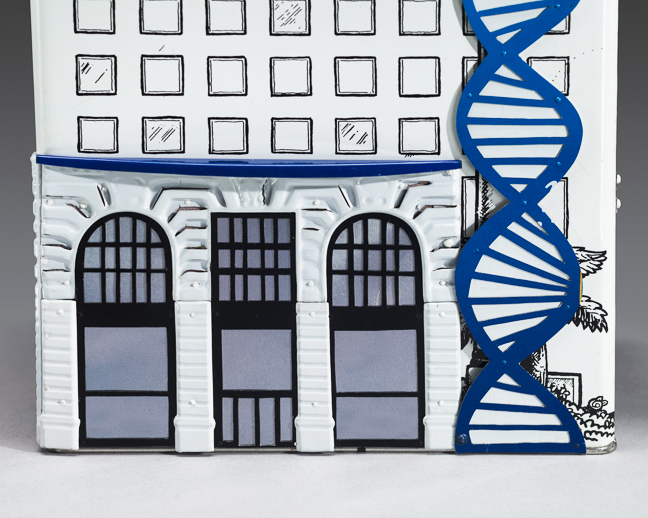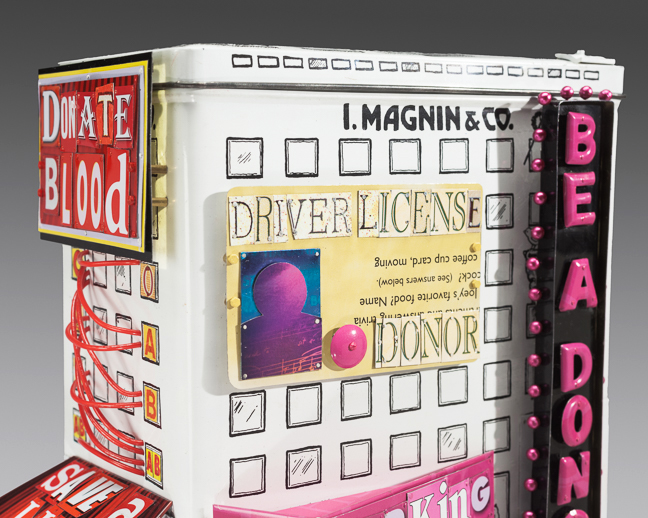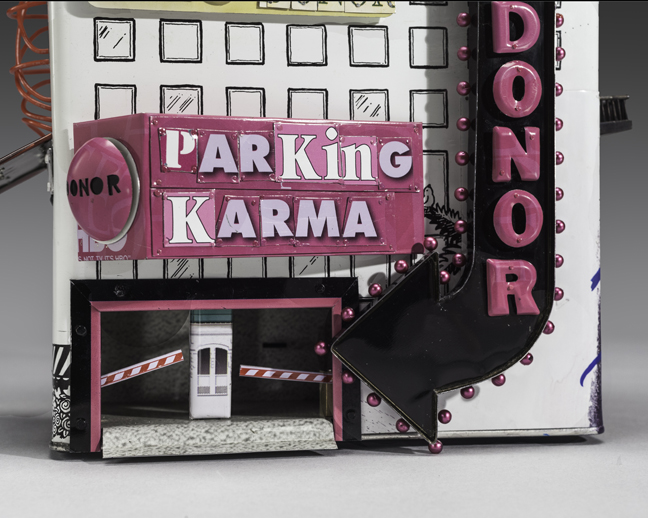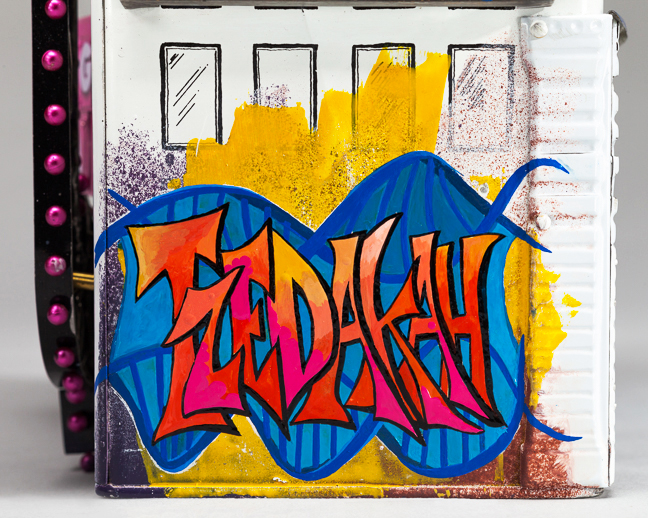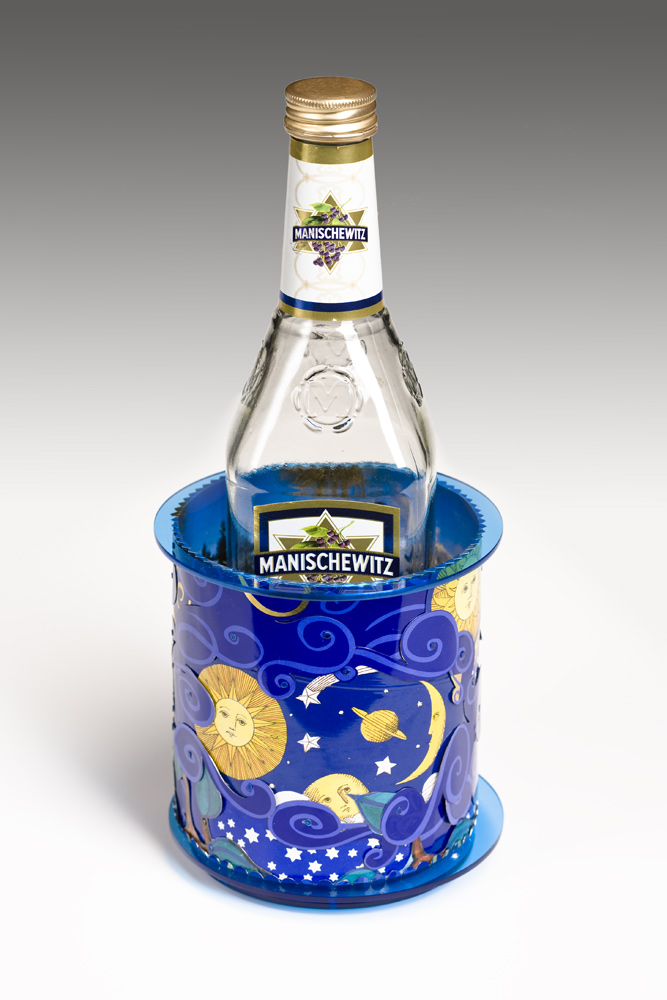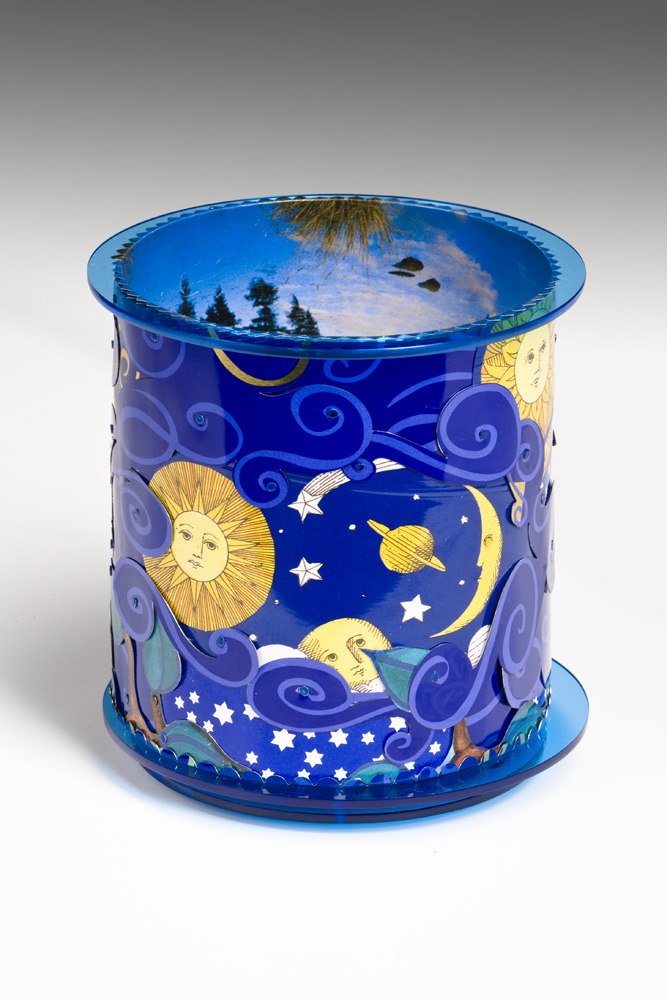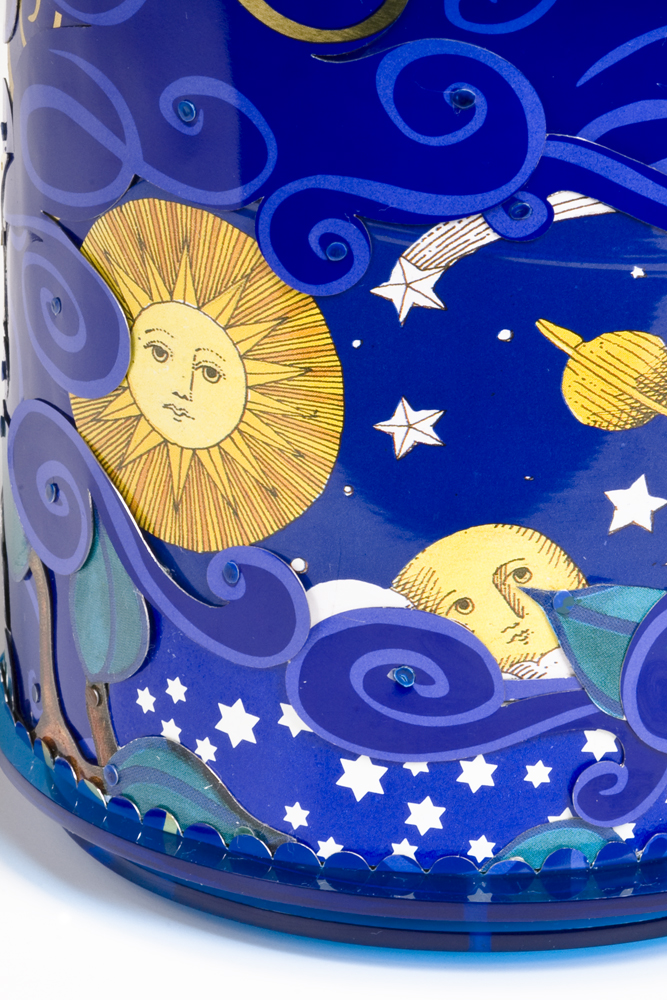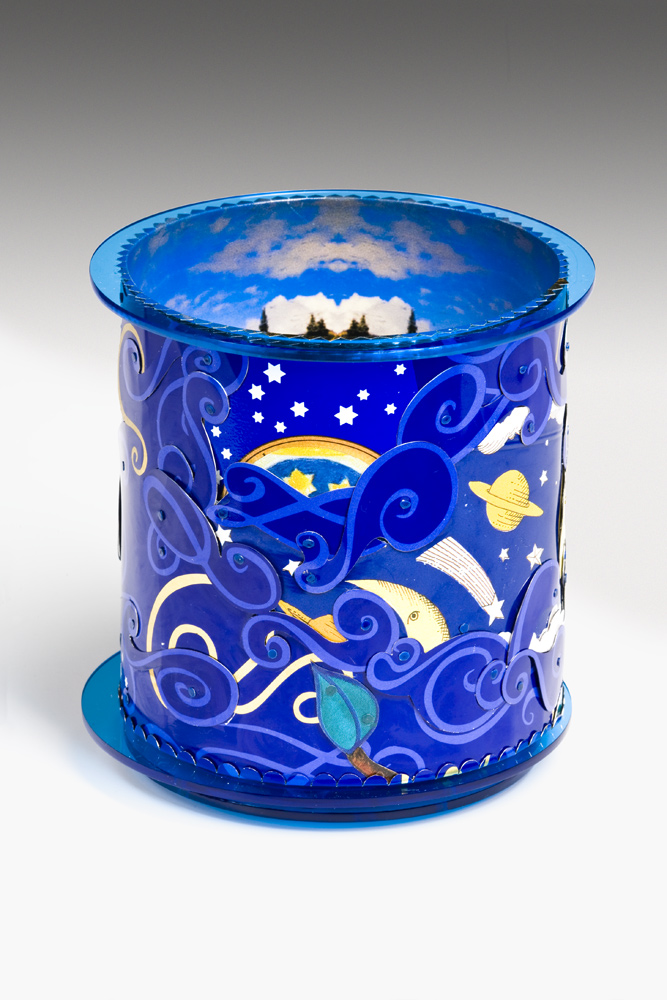Contemporary Judaica from Recycled Materials
Seven windows constructed using vintage steel dollhouses and post-consumer recycled tin cans. (This are not wooden window frames of found objects.) Each window was constructed to look like a window based on photos from mid-20th Baltimore houses. Each window frame represents a women's story - an individual woman that lived in Baltimore during the mid-20th century. The biographical accounts and personal narratives were from the Jewish Woman’s Archive*.
The seven windows inspired by old Baltimore photographs, represent the seven women and their identity within a community. Each window is about the size of a real house window.
The windows frames are constructed using the bending brake shown in the studio photos.
Windows connect us to our community, framing our perspective of the outside world. Individual stories merge to construct the framework of our communities. These windows form a neighborhood of perspectives, and focus our view on the personal stories joining all communities. Within these storied windows we can see ourselves and, perhaps, briefly extend that insight to a global community.
These are not found windows, but entirely folded steel. Detailed images on the tins relate to the familiar in our lives and evoke a sense of time. The overlapping frames, shifting perspectives, multiple layers and shadows connote the complexities of women’s lives, while the use of recycled materials suggests a spirit of renewal.
Individual stories merge to construct the framework of our communities. This neighborhood is a metaphor for all communities framing our perspective on the outside world.
Materials include: recycled tin cans, aluminum rivets, 10k gold rivets, brass and stainless steel screws.
Installation dimension in photograph: 75"H x 108"W x 19"D
© 2003 Harriete Estel Berman
Private Collection
*The Jewish Women's Archive collect’s woman's stories that have been overlooked throughout history.
Tzedakah (An Installation of 50 metal envelopes)
Installation of 50 individual envelopes constructed from recycled tin cans.
Each envelope is unique.
3.5"H x 6.25"W
Envelopes now collect checks or cash contributions for charity, essentially Tzedakah boxes of the present. However, these envelopes made from pre-printed steel also refer to different kinds of charity.
Historical descriptions of charity elucidated by Maimonides, the Talmud, and the Bible are suggested. The most familiar form of tzedakah, the Jewish National Fund "pushke box", is also used reflecting nostalgic recollections of coins dropped into a box.
Permanent Collection of Jewish Museum, New York
© 1999 Harriete Estel Berman
Tzedakah Note card are available for purchase.
4.25" x 6" (double-sided with two images)
Matching envelope is gray.
10 Cards for $27.50 (plus shipping)
Below are photos of individual metal envelopes in this installation.
Rebecca Pristoop, Leon Levy Curatorial Assistant wrote an article about my Tzedakah envelopes in the Fall 2012 Art Culture + News (published for members of The Jewish Museum, New York.)
Donate Life
Click on the title for more images and information about how I made this piece
This tzedakah box, titled “Donate Life,” is dedicated to the idea that each of us has the power to save a life by donating blood, registering as a donor on our driver license, or participating in medical research. These common actions exemplify the highest form of tzedakah in which the donor and the receiver do not need to know one another, yet the gift enables the beneficiary to recovery and become a contributing member of society. We can literally change a person’s life.
Similar to buildings renovated for a new purpose (including the Contemporary Jewish Museum and many others in downtown San Francisco), this tin of the iconic I. Magnin building has been repurposed to represent a tzedakah box and to highlight tzedakah contributions that can “Donate Life.” Construction of "Donate Life" is shown in this Flickr album.
Register online to become an organ donor at: http://organdonor.gov/index.html. On this site you can register with your local state DMV to become an organ donor. All ages and health profiles are needed. Registration isfree. It doesn't matter about your age or health everyone can be an organ donor.
Another form of tzedakah is to participate in medical research. Usually this involves only a blood sample, check swab or filling out forms. Participation as a healthy control is in serious need. For example, 85% of clinical trials face delays due to lack of volunteers and 30% never even get started. Two places to register for clinical trials are Research Match and Fox Finder.
Kiddush Cup - Ve’haivatee
Ve'haivatee - and I will bring you into the land I promised Abraham, Isaac, and Jacob, 1997
Kiddush Cup for Elijah (the fifth cup of wine) during the Passover Seder.
Constructed from pre-printed steel from “Pushke” Boxes for the Jewish National Fund; Aluminum Cup.
9.75" H x 5" W x 5" D
Mezuzahs made from JNF pushke boxes can be found on the Mezozot page.
This kiddush cup is featured in Modern Judaica, by Jim Cohen, along with 8 other pieces of mine.
Hanukkiah
Hanukkiah constructed from recycled tin cans, vintage "Pushke" Boxes used for the Jewish National Fund, and pre-printed steel from vintage doll houses. Aluminum rivets. One-half inch acrylic cubes function as feet under the menorah.
3"H x 21"W x 25.5"L
Available for exhibition or purchase.
Price: $4,900
L'Chaim Wine Holder
Wine Coaster constructed from recycled tin cans, blue Plexiglas, 10 k. gold, sterling silver, and aluminum rivets. Fits all wine bottles including Manischewitz.
Plexiglas liner inside wine coaster is removable for cleaning and will catch moisture or wine inside the coaster. This Plexiglas liner is not visible in the photos.
5.5" height x 5.25 "diameter of base.
Available for exhibition or purchase.
Retail Price: $925
© 2009 Harriete Estel Berman
Return to the main Judaica by Harriete Estel Berman by CLICKING HERE.







